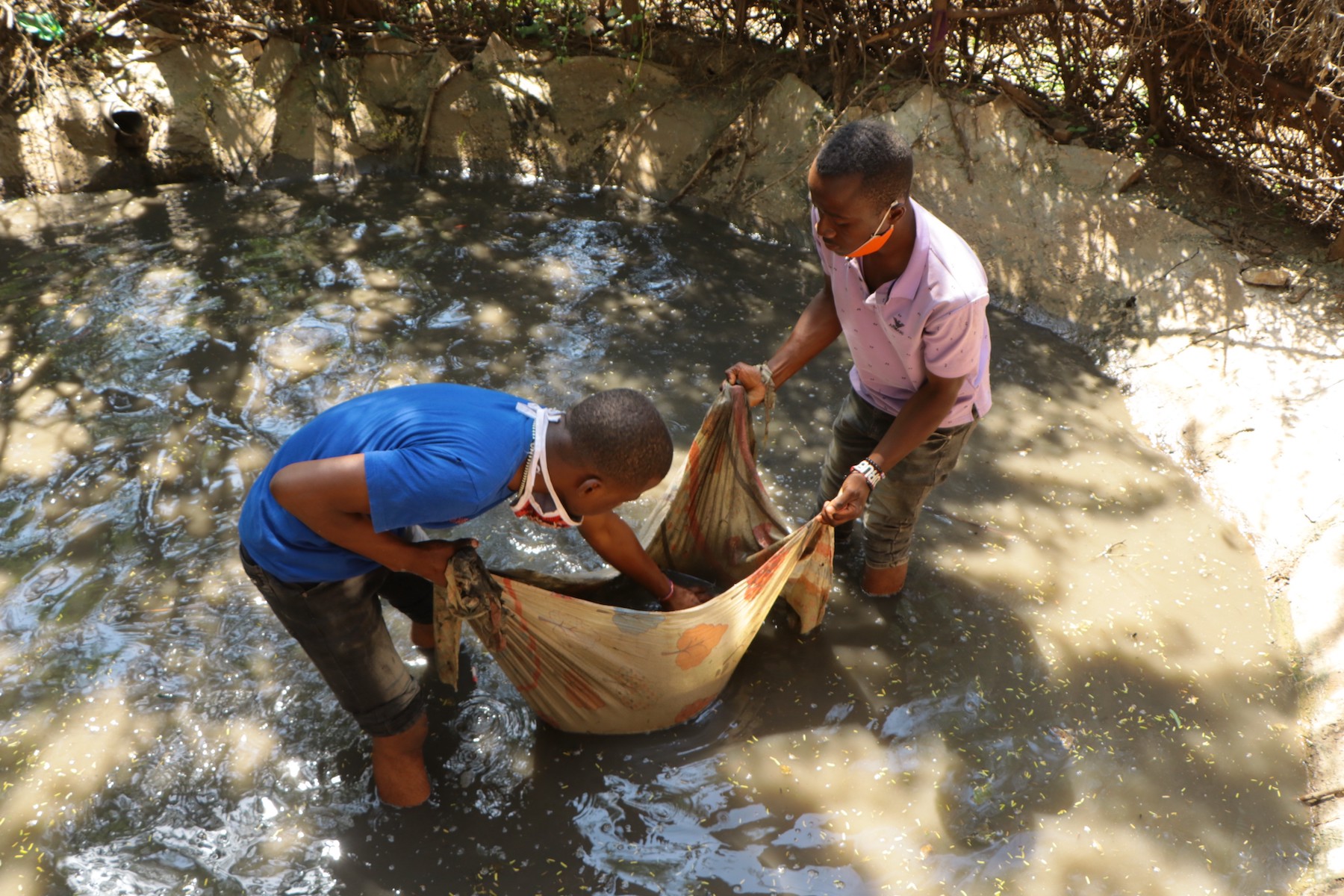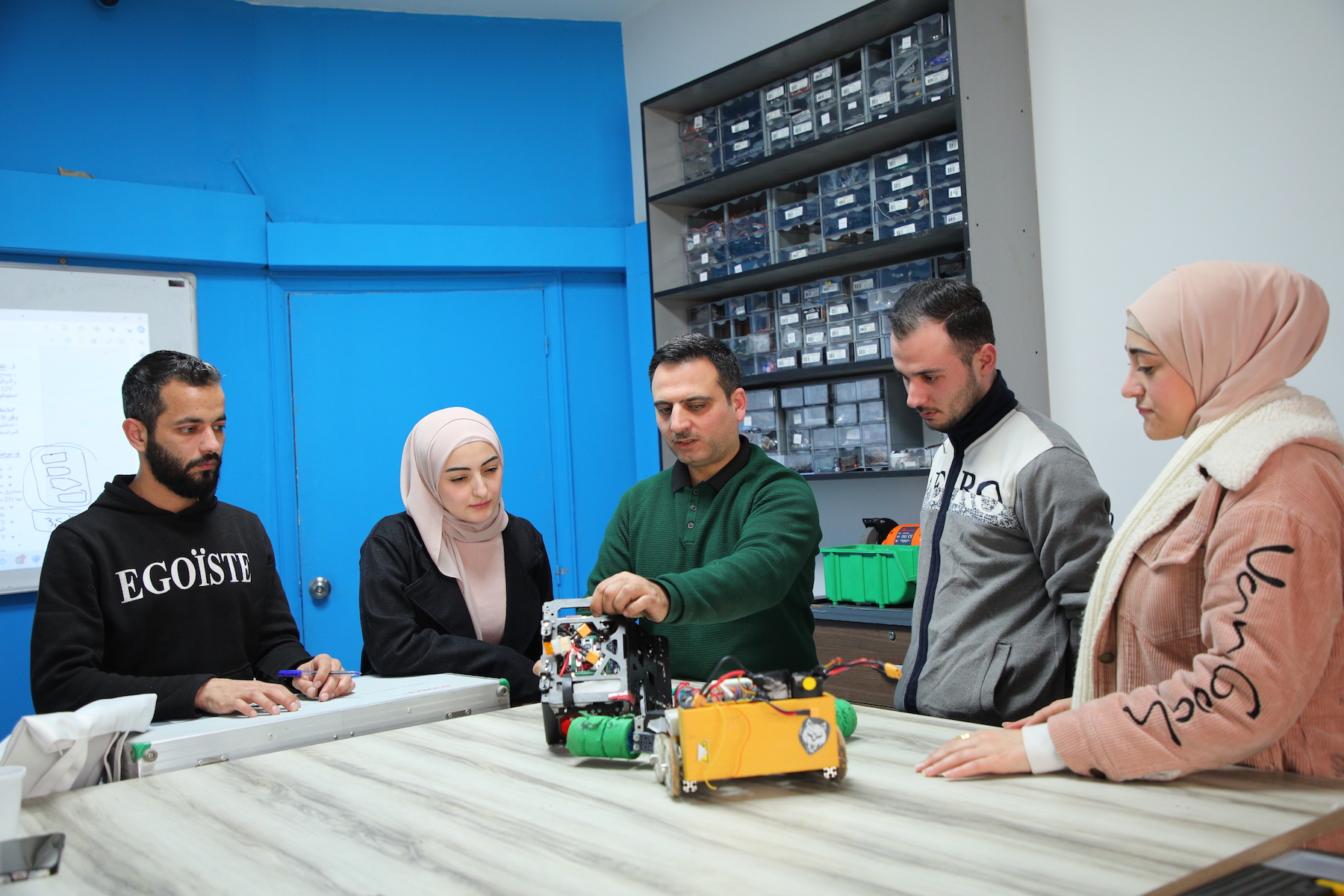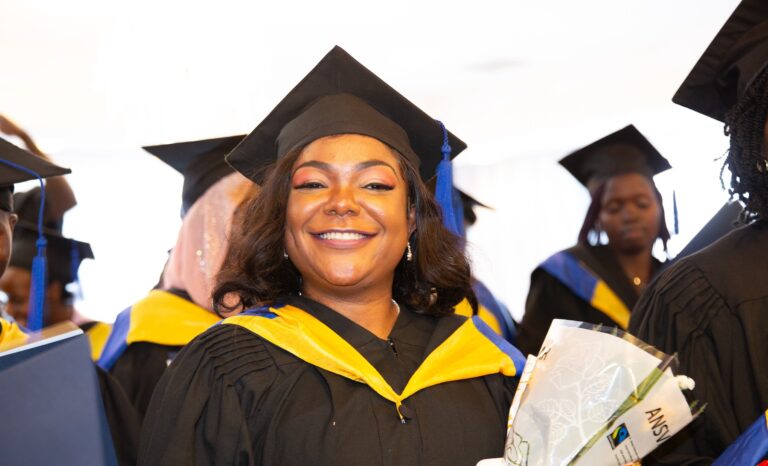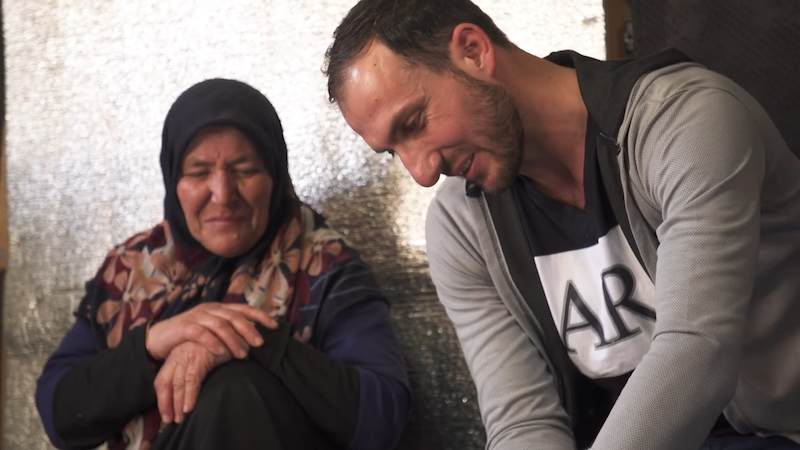The project won support from the UN World Food Programme for its sustainable approach to fighting hunger.
In the Kakuma Refugee Camp in Kenya, a group of refugee students has designed a sustainable and self-sufficient agricultural system to feed camp residents. The Fishing in the Desert project is co-led by Glory (Lukambo) Luundo, a Congolese refugee living in Kakuma camp and Southern New Hampshire University Global Education Movement (SNHU GEM) student pursuing a bachelor’s degree in healthcare management with a concentration in global perspectives. Working together with other youth from Kakuma camp, Glory is fighting hunger and malnutrition in the Kakuma refugee community by establishing fish ponds to farm tilapia and catfish.
Despite tough competition from over 150 other groups, the Fishing in the Desert project was one of just four student teams to win the United Nations World Food Programme (WFP)’s first NextGen East African Innovators Programme in 2021. The NextGen program aims to support student innovators from East Africa as they develop solutions to food-related challenges. The Fishing in the Desert team also gained access to an intensive mentorship program with the Technical University of Denmark’s laboratory for food systems change and innovation, DTU Skylab FoodLab.
When Glory established his first fish pond in Kakuma camp, it was only 2m by 1m with eight tilapia fish, but the project grew rapidly. Glory moved the project into a communal space and co-founded the Vijana Twaweza Club with other youth in Kakuma camp to support the project. The group currently has 40 members from South Sudan, the Democratic Republic of the Congo, and Burundi. Glory credits his SNHU GEM education for providing him with the “leadership, management, and entrepreneurship skills that have tremendously helped me and the Vijana Twaweza Club to grow.”
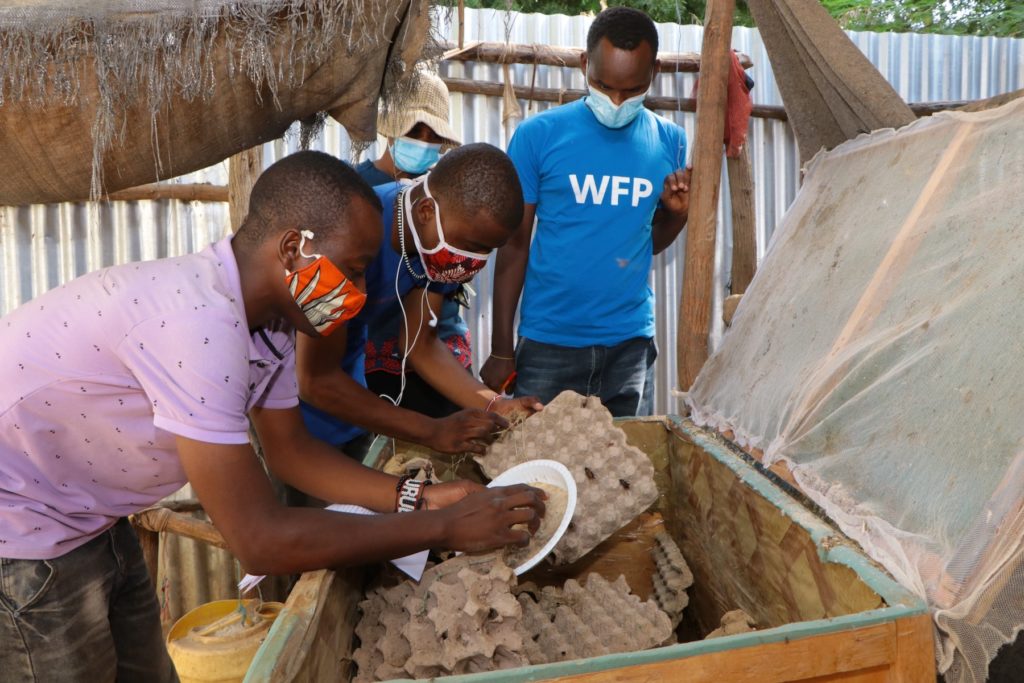
Glory and members of the Vijana Twaweza Club check on the progress of their crickets.
With support from the World Food Programme and DTU Skylab FoodLab, the Fishing in the Desert team is continuing to improve their project, with a focus on building a more sustainable system. Vijana Twaweza Club members and a group of students at the DTU Skylab FoodLab have created a prototype “aquaponic farm” at DTU to replace their crop gardens at Kakuma refugee camp. In an aquaponic farm, the nutrient-rich water from raising fish provides a natural fertilizer for the crops, and the plants help to purify the water for the fish.
“We raise crickets to feed the fish, and then we use the water from the ponds to provide nutrients to the crops. Some of these crops are then fed to the crickets. To close the circle, the fish, crickets, and crops are all consumed by humans in the camp,” explained Glory. The team is working to implement aquaponic farms at every fish pond in Kakuma camp.
SNHU GEM recognizes the importance of empowering refugee youth with the tools to develop grassroots solutions to the problems in their communities. As the team behind the innovative Fishing in the Desert project has proven, they have the vision needed to tackle widespread hunger and malnutrition. SNHU GEM and its partners can offer the support needed to refine and expand their ideas for transformative change.
Read more about Glory: https://gem.snhu.edu/2022/06/16/snhu-gem-student-profile-glory-luundo/
